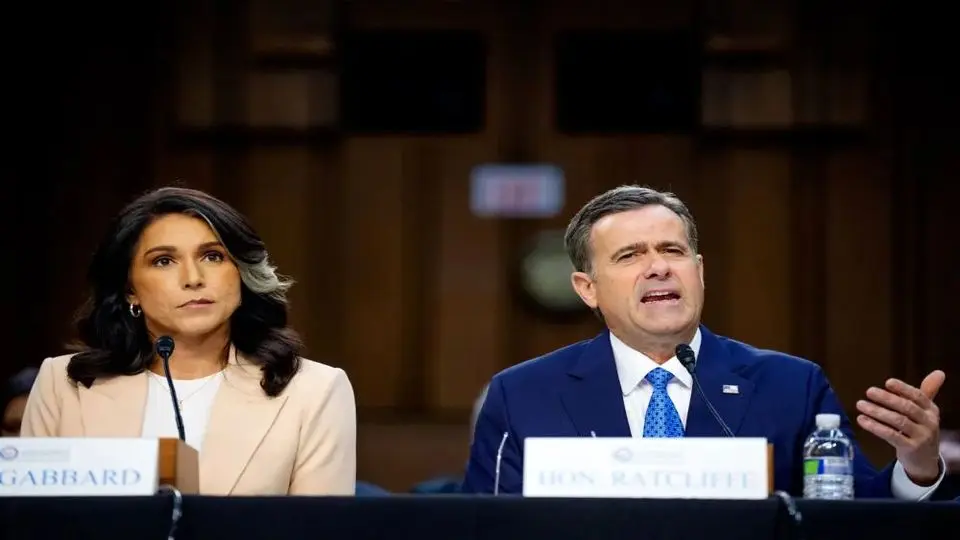The Atlantic publishes leaked chat between Trump’s aides on U.S. attack against Yemen
A U.S. media outlet reveals how top government officials leaked the details of Yemen attack, including types of warplanes used to drop bombs on the Arab country.

The Atlantic magazine has published a group chat among senior U.S. national security officials, including Defense Secretary Pete Hegseth revealing about military strikes in Yemen prior to the pilots even taking off to drop bombs.
The plan included precise information about weapons packages, targets, and timing shared by officials on the Signal messaging app and accidently texted to Jeffrey Goldberg, the editor-in-chief of The Atlantic.
“The world found out shortly before 2 p.m. eastern time on March 15 that the U.S. was bombing Houthi targets across Yemen. I, however, knew two hours before the first bombs exploded and the reason I knew this is that Hegseth had texted me the war plan at 11:44 a.m.,” Goldberg wrote on Wednesday.
While the editor-in-chief's article referenced F-18 launches and strikes, it omitted exact targets in Yemen, NBC News reported.
On Tuesday, March 11, I received a connection request on Signal from a user identified as Michael Waltz. I assumed that the Michael Waltz in question was President Donald Trump’s national security adviser. I accepted the connection request, hoping that this was the actual national security adviser, and that he wanted to chat about Ukraine, or Iran, or some other important matter. Two days later, I received a notice that I was to be included in a Signal chat group. It was called the “Houthi PC small group.”
The revelation came as intelligence and defense departments struggled to explain how such sensitive and classified data were disclosed in an unclassified chat.
According to The Atlantic the administration of U.S. President Donald Trump sought to downplay the significance of the texts, with White House Press Secretary Karoline Leavitt previously claiming that no classified material was shared in the conversation.
Signal, the messaging app used in this chat, is generally not considered secure enough for national security matters.
During a Senate Intelligence Committee hearing, Director of National Intelligence Tulsi Gabbard and CIA Director John Ratcliffe said that it was the defense secretary's responsibility to determine the classification of his posts.
Hegseth has, so far, evaded questions about whether he posted classified information, insisting that he did not share any war plans.
However, the chat revealed details such as the types of warplanes being used and the timing of airstrikes against Yemen, raising serious concerns about security protocols within the Trump administration.
Congress is calling for the full exchange of messages to be made public, voicing doubts about the Trump administration's handling of critical issues.
The National Security Council is probing how Goldberg gained access to the chat, which included key figures such as Vice President J.D. Vance and National Security Adviser Michael Waltz.
Critics are calling for accountability, with some legislators even urging resignations.




